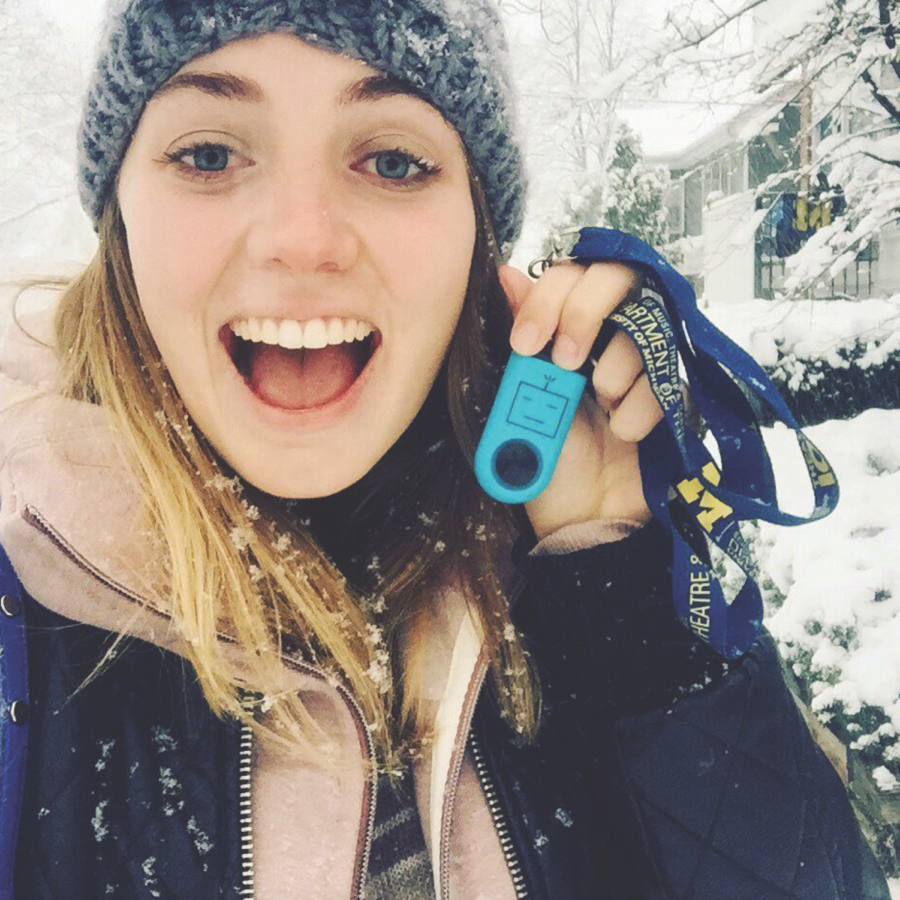New security device making campuses safer for students
A new security device known as the “Sound Grenade” is gaining popularity on college campuses across the nation. The product, manufactured by a company called ROBOCOPP, emits a high pitched siren at 120 decibeles that can be heard from up to 900 feet away. The company has been in business for roughly two years. During that period, the product has spread to over 100 University campuses. The Sound Grenade can be used as an alternative to pepper spray, knives, whistles, and other self-defense/security products. The device can currently be purchased for $15.99 on the companies website, www.robocopp.com.
Mark Twain once said, “It’s not the size of the dog in the fight, it’s the size of the fight in the dog.”
This cliché is being proven correct by ROBOCOPP, a company geared toward promoting campus safety through a small, compact device about the size of a key fob. The company has engineered a “sound grenade” that releases a 120-decibel siren to deter attackers and threats.
The new wearable safety device, known as a portable personal emergency siren, is gaining popularity on college campuses and aims to deter potential attackers by sounding an alarm after the user pulls a pin. The ultra-compact siren, weighing less than one ounce (20g), is small in size but big in sound. The siren will blare continuously for 30 minutes unless the user returns the pin to the device.
Independent testing by Masson and Gavin Corlette of United Idiots determined the sound grenade could be heard from up to 900 feet away, roughly the length of three football fields.
According to Jill Turner, public relations director for ROBOCOPP, the product has been on the market for almost two years and has been adopted by more than 100 campuses all over the nation.
“If carrying something that weighs practically nothing increased your chances of escaping an attack by even 1 percent, then it would be worth $15,” said Turner. “What’s amazing is that it increases your chances significantly more than that.”
Turner points to a study, “Situational Deterrence: Fear During the Criminal Event,” by Maurice Cusson of the School of Criminology and International Center for Comparative Criminology at the University of Montreal.
The study indicates that “the sounding of an alarm and the resistance of the victim quite often succeed in putting robbers to flight. In Swiss banks, as soon as the alarm is heard, 68 percent of hold-up men run away empty handed.”
ROBOCOPP believes their alarm would function in a similar way.
“If we can decrease the risk of a mugging or kidnapping by 68 percent, we are on the right track,” said Turner.” “We hear from students regularly that they feel empowered carrying this device with them, not to mention the very moving stories we hear from our users who have successfully prevented muggings. Most recently a UC Berkeley student used it to stop a mugging at a train station when two men demanded her money and claimed they had a gun.”
The company originally developed the Sound Grenade as a non-violent solution to pepper spray. ROBOCOPP CEO Sam Mansen wanted something to make his college sister safer on her campus. Mansen didn’t want to use pepper spray because it forces you to confront an attacker, which most people don’t want to do, and also because it can be used against you.
After extensive academic research into crime deterrence, he found that a loud alarm was one of the best possible deterrents.
“Pepper spray, for example, is the most common personal safety device,” said Mansen. “However, most of the time, most consumers have never used their pepper spray and nor do they want to.”
Mansen did his own research to see how comfortable those who carried around key chains with pocketknives were with using them.
“I ask them, ‘Are you prepared to stab someone?’ And I’ve never gotten a yes,” he said.
He added, “Rather, people prefer to get help or run away.”
Mansen and the developers of ROBOCOPP wanted to create a tool allowing people to do exactly that.
“We wanted to reinvent the personal alarm concept, which has been around for about 20 years, but never used because it was never appealing,” he said.
The ultra-compact Sound Grenade that fits in the palm of your hand is currently on sale for $15.99. However, the company also offers a version called the Sound Grenade+ that can be used in the city or outdoors. Its tough rubber exterior is designed for backpacks and is louder than the original at 130 dB, but still the same weight, 20 grams. That model can be purchased for $19.99.
The company is also working on a new 130 dB siren model called the ROBORanger that comes equipped with 24/7 security monitoring that initiates a 911 response. The device only releases the cellular and GPS location once the user pulls the pin to activate a distress call. This version will be available in June 2017 on the website www.robocopp.com.
Your donation will support the student journalists of Missouri Southern State University. Your contribution will allow us to purchase equipment and cover our annual website hosting costs.




















